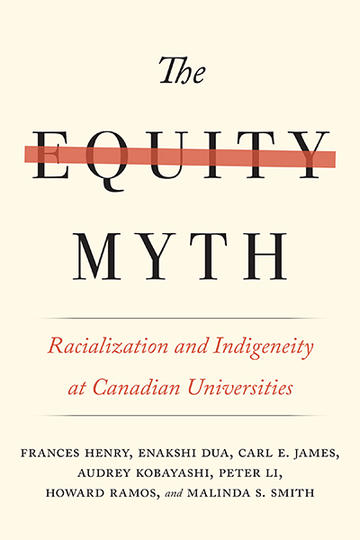About BC Books Online
BC Books Online was created for anyone interested in BC-published books, and with librarians especially in mind. We'd like to make it easy for library staff to learn about books from BC publishers - both new releases and backlist titles - so you can inform your patrons and keep your collections up to date.
Our site features print books and ebooks - both new releases and backlist titles - all of which are available to order through regular trade channels. Browse our subject categories to find books of interest or create and export lists by category to cross-reference with your library's current collection.
A quick tip: When reviewing the "Browse by Category" listings, please note that these are based on standardized BISAC Subject Codes supplied by the books' publishers. You will find additional selections, grouped by theme or region, in our "BC Reading Lists."
The university is often regarded as a bastion of liberal democracy where equity and diversity are vigorously promoted. In reality, the university still excludes many people and is a site of racialization that is subtle, complex, and sophisticated. This book, the first comprehensive, data-based study of racialized and Indigenous faculty members’ experiences in Canadian universities, challenges the myth of equity in higher education. Drawing on a rich body of survey data, interviews, and analysis of universities’ stated policies, leading scholars scrutinize what universities have done and question the effectiveness of their employment equity programs. They also make important recommendations as to how universities can address racialization and fulfill the promise of equity in the academy.
Frances Henry, FRSC, is a professor emerita of anthropology at York University.
Enakshi Dua is the director of the Graduate Program in Gender, Feminist and Women’s Studies at York University.
Carl E. James, FRSC, teaches in the Faculty of Education and in the Graduate Program in Sociology at York University.
Audrey Kobayashi, FRSC, is a professor of geography at Queen’s University, Kingston.
Peter Li, FRSC, is a professor emeritus of sociology at the University of Saskatchewan.
Howard Ramos is the associate dean of research in the Faculty of Arts and Social Sciences and a professor of sociology at Dalhousie University.
Malinda S. Smith is a professor of political science at the University of Alberta.
The Equity Myth paints a bleak picture in which the hegemonic whiteness and patriarchy of the institution show remarkable resilience through lip service and tokenism. [...]On the other hand, it recommends possible concrete solutions[...]a must-read for anyone interested in the social sciences, in discrimination, or simply in being decent and well-informed human beings.
The Equity Myth is a necessary book that draws on new and existing statistical and qualitative data to describe the routine reproduction of race inequities in the academy. As they undercut the prevailing image of the university as an ivory tower insulated from the rest of the social world and its ills, including colonialism and racism, the authors provide devastating evidence of the institutionalization of whiteness and the ongoing marginalization of racialized minorities and Indigenous persons in the academy.
[G]roundbreaking new research led by York University Professor Emeritus Frances Henry puts Canadian universities under the microscope. This new inquiry … shows that racialized and Indigenous faculty are low in numbers and even lower in terms of power, prestige and influence compared to non-racialized [white, male] counterparts within the university
The Equity Myth brings to the surface tensions that racialized faculty widely experience but seldom formally discuss in their workplaces. These include pay inequity, unequal hiring processes, a lack of visibility for racialized faculty in the professoriate, Euro-centric curricula and racial discrimination.
Until now, those tensions have been felt only in the abstract or anecdotally. Statistics Canada does not collect data on racialized minorities as part of the data it compiles on faculty and students at Canadian universities; nor do provincial governments collect such information. There has been recent change on this front from the University of Toronto and Ryerson University, both of which have announced in the past year that they would start collecting race-based data about their students. But no data exists on the effectiveness of university employment equity policies or policies against discrimination, despite their ubiquity across Canadian campuses.



